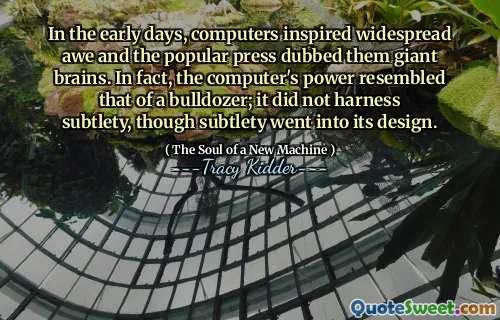
在一本名为“计算机力量和人类理性”的书中,麻省理工学院的计算机科学教授约瑟夫·韦森鲍姆(Joseph Weizenbaum)写道,他称之为“强迫”计划。他将受苦的年轻人描述为聪明的外观,经常带着沉没,发光的眼睛,在计算机控制台上扮演无所不能的狂热幻想。他写道,他们坐在机器上,手臂紧张,等着射击手指,已经准备好打击了,他们的注意力似乎像赌徒的掷骰子一样被关注。
(In a book called Computer Power and Human Reason, a professor of computer science at MIT named Joseph Weizenbaum writes of a malady he calls the compulsion to program. He describes the afflicted as bright young men of disheveled appearance, often with sunken, glowing eyes, who play out megalomaniacal fantasies of omnipotence at computer consoles; they sit at their machines, he writes, their arms tensed and waiting to fire their fingers, already poised to strike, at the buttons and keys on which their attention seems to be as riveted as a gambler's on the rolling dice.)
在“计算机力量和人类理性”中,麻省理工学院的教授约瑟夫·韦森鲍姆(Joseph Weizenbaum)描述了一种痴迷,他称他为“计划的强迫”。他将受到这种状况困扰的人描绘成聪明而有意义的年轻人,经常带着沉没,发光的眼睛。这些人坐在他们的计算机上时被宏大的权力和控制幻想所消耗,非常专注于手头的任务。
Weizenbaum强调了这些程序员的近乎吸引力的行为,他们表现出紧张的身体姿态,热切准备与钥匙和按钮互动。它们在屏幕上的固定类似于固定在滚动骰子的结果上的赌徒,突出了对技术和编程的深刻,几乎强迫的参与。











